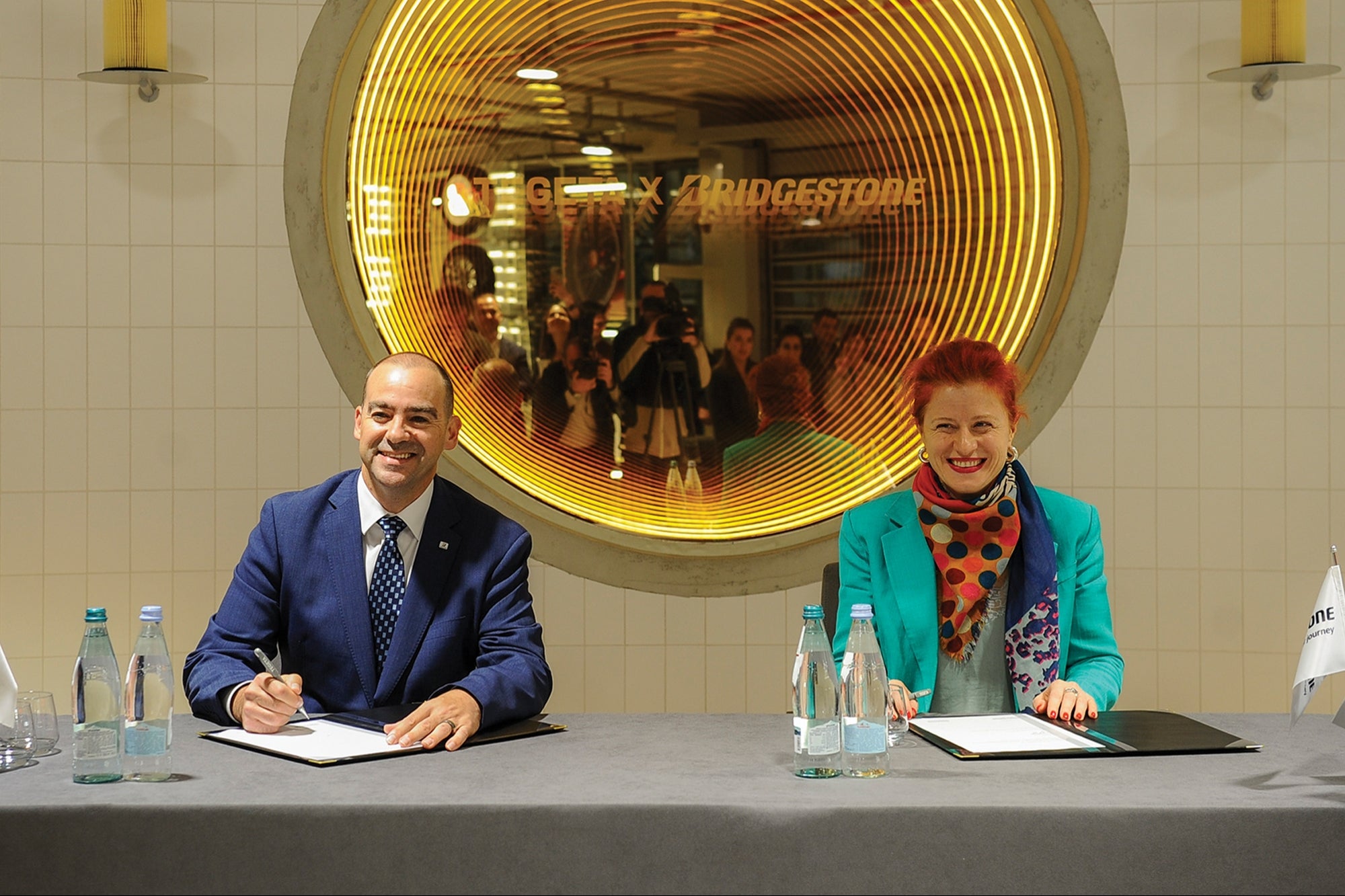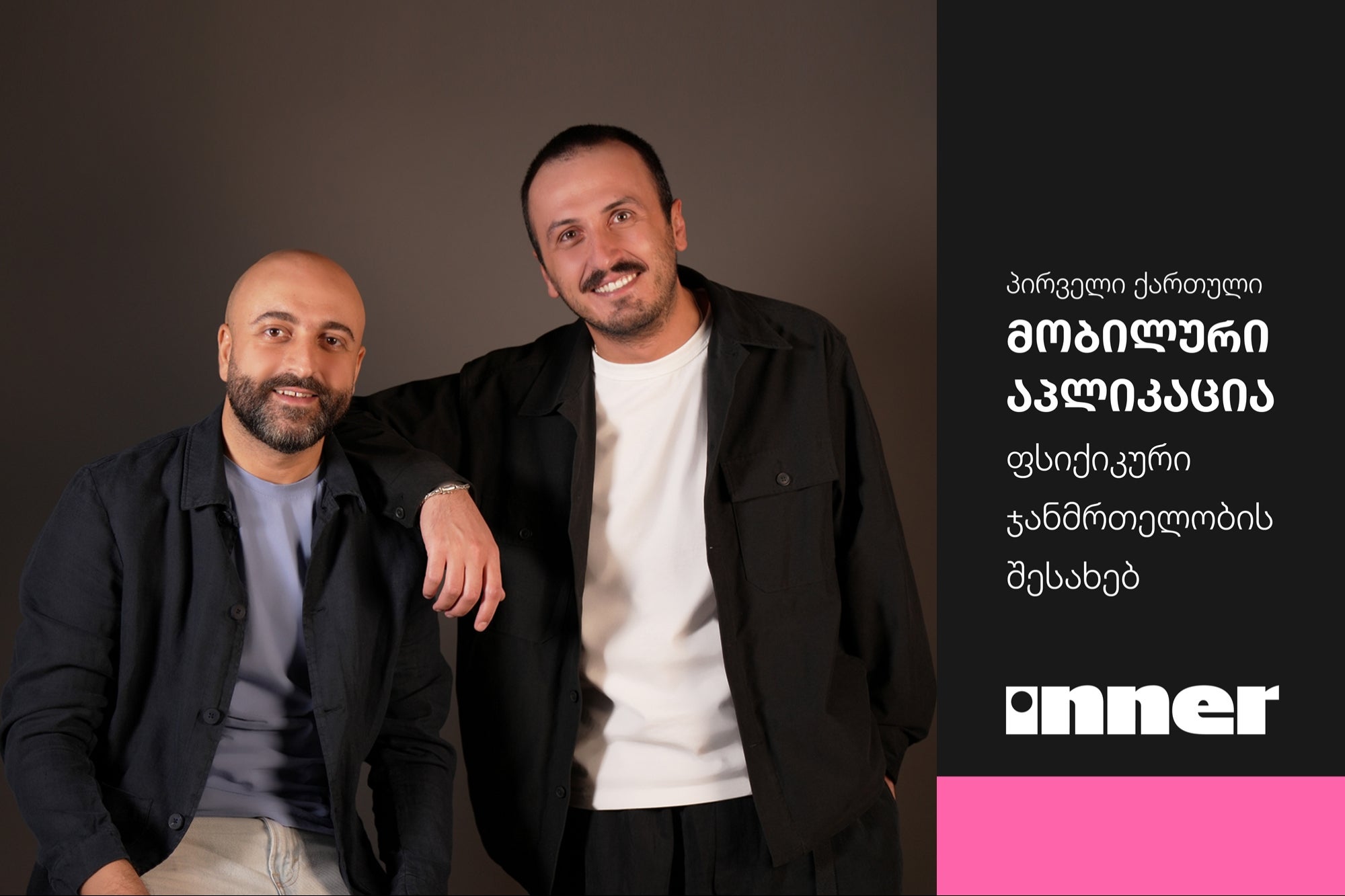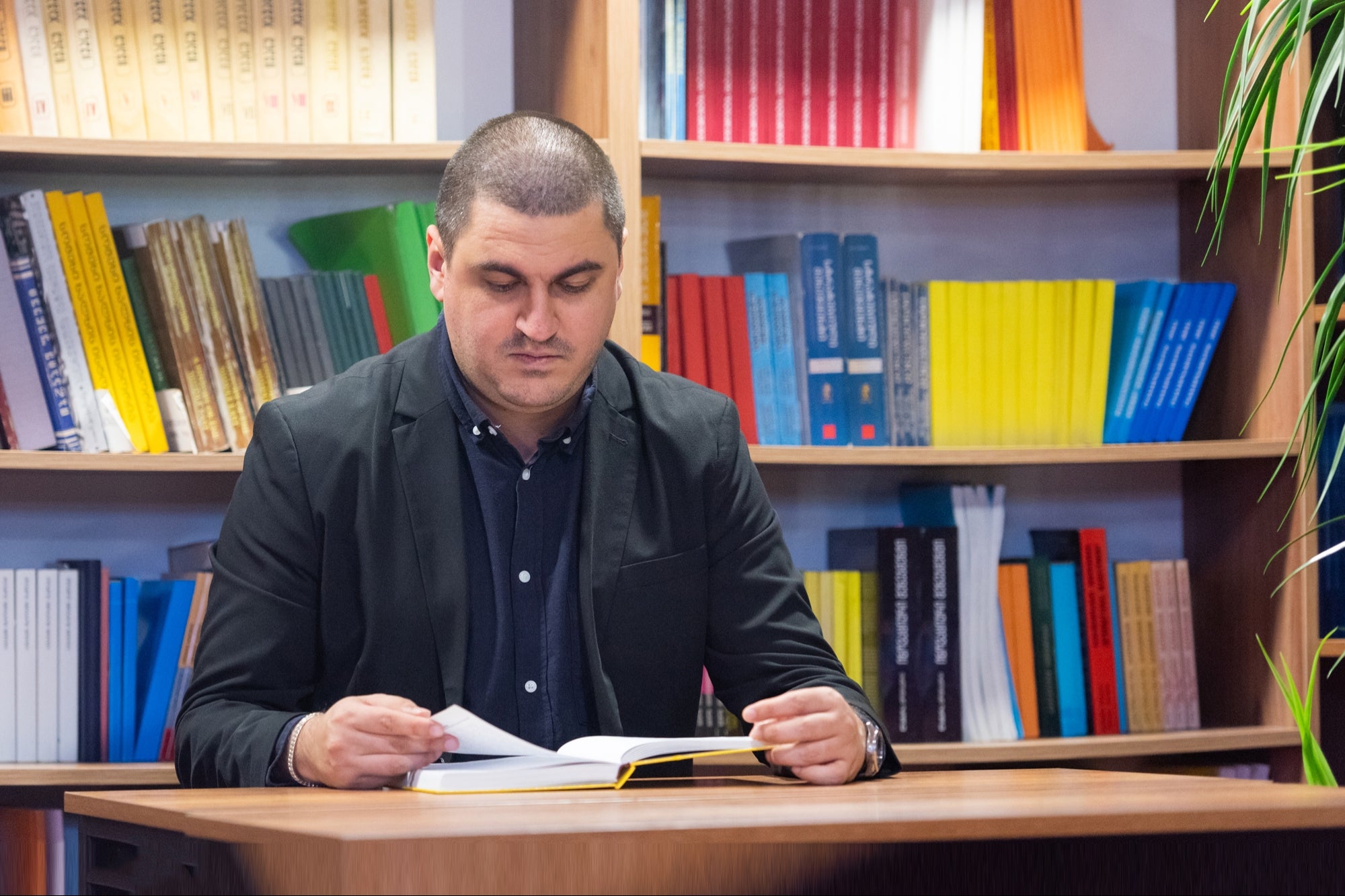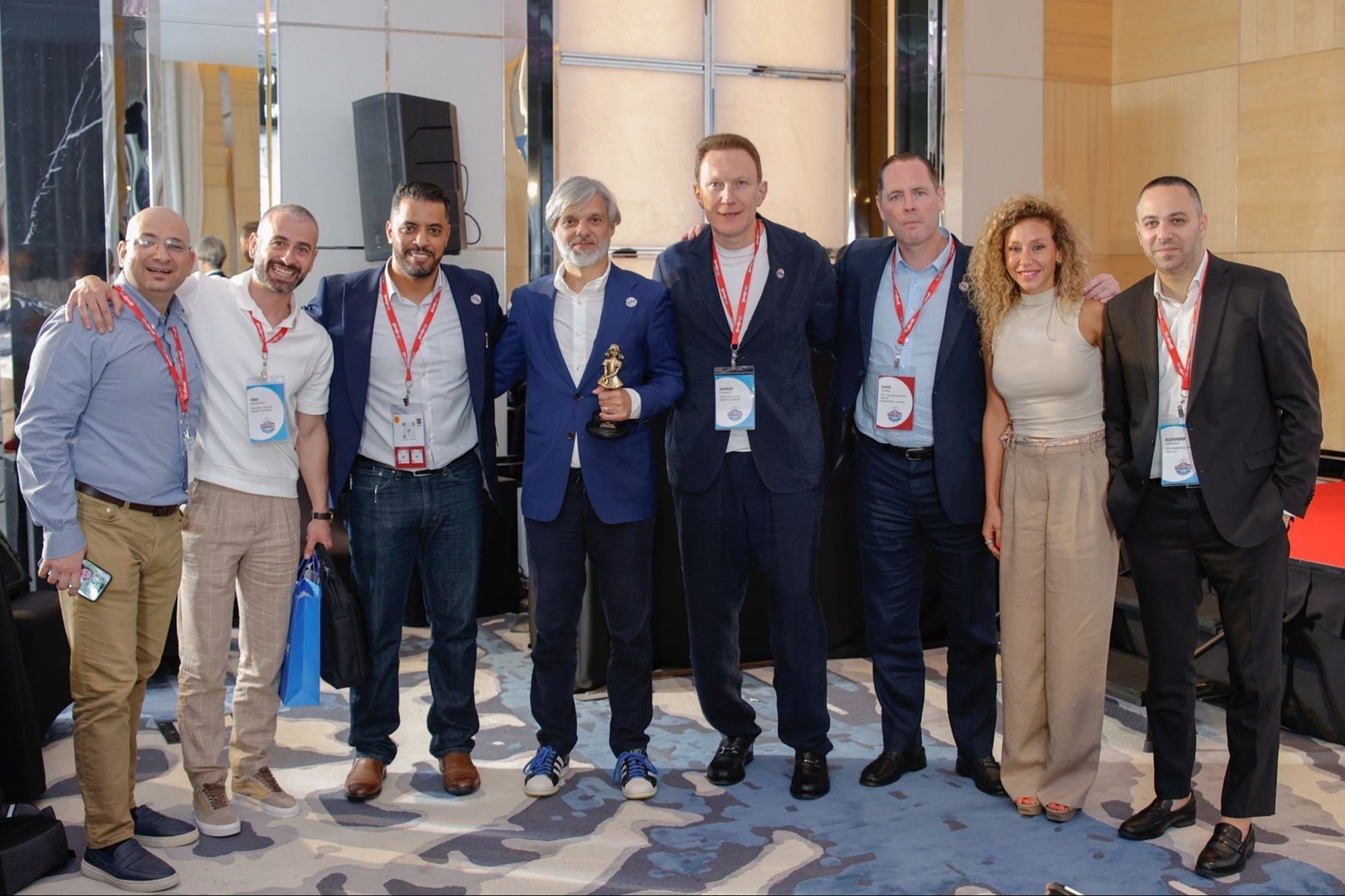Transforming Obstacles into Opportunities: Yulia Frolova Shares Her Pathway to Entrepreneurial Success in Financial Consulting
Opinions expressed by Entrepreneur contributors are their own.
You're reading Entrepreneur Georgia, an international franchise of Entrepreneur Media.
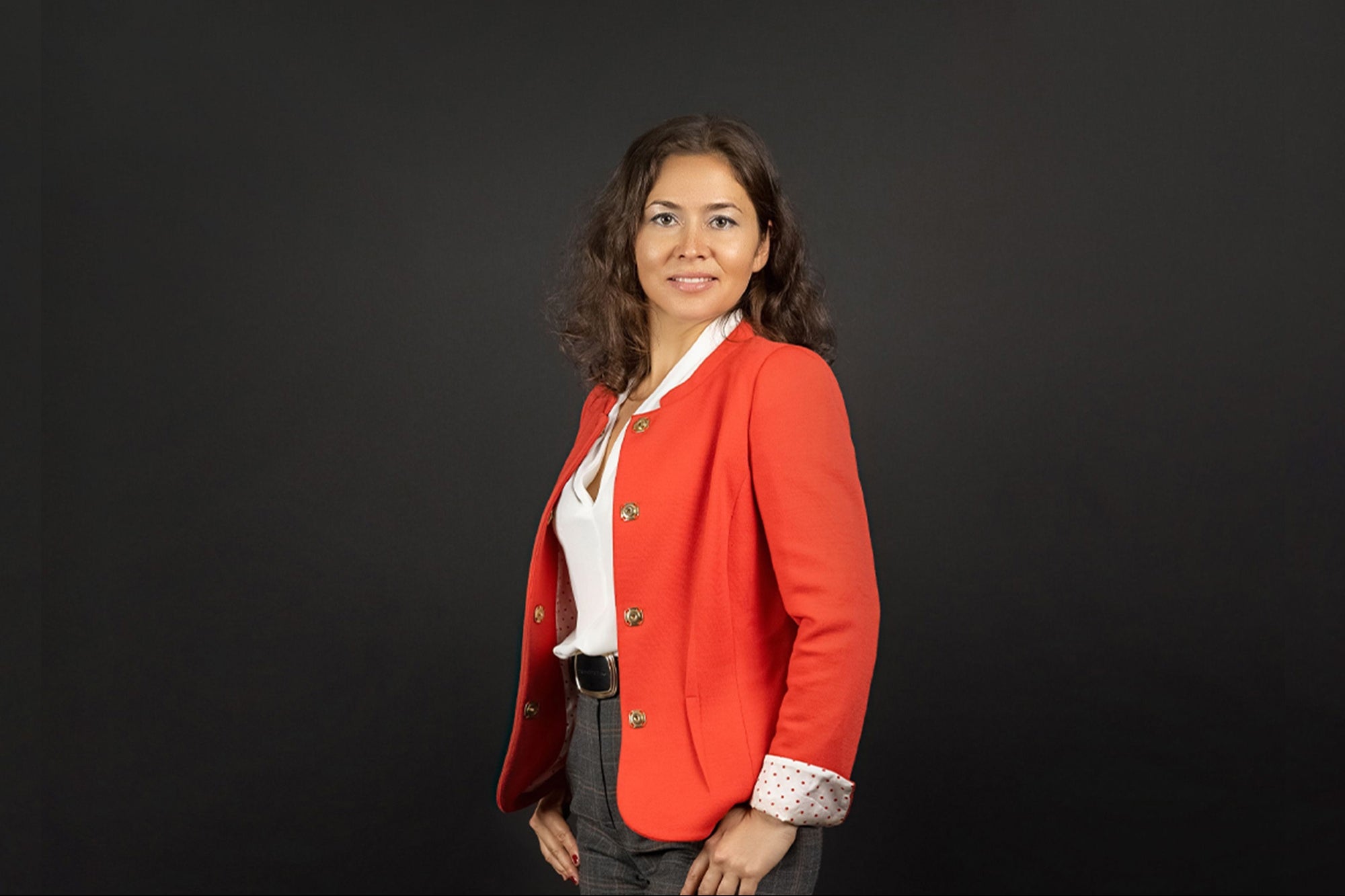
Entrepreneur met with Yulia Frolova – a finance professional with over 15 years of international experience, Founder and CEO of the U.S.-based company SunTax Consulting, specializing in providing expert tax advice and other financial and business-related services to companies and individuals alike.
Born in a small Eastern European country, Moldova, Yulia succeeded in building a remarkable career within globally renowned companies. A few years ago, she made a decision to leave behind her corporate career and embark on the journey of starting her own business. Today we are discussing her professional and educational pathways, personal accomplishments and future milestones.
Entrepreneur: Yulia, let's begin today's interview by delving into your professional journey in the United States. What exactly motivated you to leave your prestigious and dynamic job in a robust corporation where you've been working for more than a decade and start your own business in another country?
Well, it was a tough decision, though. The idea that I would like to further expand my professional horizons wasn't born overnight. I would say, I was thinking of starting my own business for the last 5-6 years, but I wasn't sure whether to stay in my home country or move abroad.
Working within a big corporate structure is definitely great, as there is a learning curve: the vast majority of large and established corporations have been in business for a long time, all the internal processes and procedures were meticulously built up and polished for years.
But as you know, there is always room for improvement and optimization. Sometimes even minor adjustments to the process can create a significant difference. All of these adjustments necessitate varying degrees of restructuring of the existing routine. At the same time 99% of people prefer stability and they inadvertently resist any potential change.
That's why so-called "change management" is considered to be the most stressful type of management. As a change leader, you constantly face the challenge of addressing resistance and overcoming it around the clock, which can be very overwhelming. And now imagine that you are not the one making strategic decisions for the company (which is the case when you are a regular employee or middle management, whatever). Now your mission becomes even more challenging and, in many cases, impossible, as your initial step would be to convince the top management and/or shareholders that the change is necessary.
To make the long story short, I would say that after almost 15 years of my corporate career path, I became truly frustrated about my limited capacity to change things for the better within the organization. There were ups and downs throughout my journey, when even small victories transferred me on cloud nine and made me super motivated for a long time. There were also periods of frustration that, I believe, hindered my ability to perform at my fullest potential.

Thus, finally I made the decision to venture into building my own business.
Entrepreneur: I totally understand your perspective. When the individual possesses an entrepreneurial mindset and demonstrates strong leadership potential, it often becomes a natural progression for this person to pursue his/her own path and start his own venture.
Yes, that's true. I believe that transitioning from being a corporate manager to becoming a business owner was just a matter of time for me. When I felt I was experienced and mature enough to take on new challenges, I just made this move.
Entrepreneur: Why did you decide to move to the USA instead of setting up your business in your home country? I suppose it could bring a lot more stress and associated risks, right?
Of course, it was a huge step outside of my comfort zone. Probably, one of the most challenging steps that I have ever made. But at the same time, it has been an incredibly rewarding experience to invest all my efforts into building the business from scratch and witnessing its subsequent development and growth.
As for the associated risks, it's natural that entering a new market is the riskiest strategy, especially if this is your first ever venture. However, these risks can be effectively addressed and mitigated by conducting a thorough market research and analysis. So, the first thing that I did was performing a comprehensive analysis of the industry, local demographics, competitors, legal constraints, and other influencing factors. Then I began exploring industry niches that my prospective business could fill.
The U.S. financial and tax consultancy market is very mature, which means the competition is really harsh. You cannot simply enter the existing market and start offering the same services that your competitors do – you just wouldn't be able to attract customers. It's quite common for both individual and business clients to stick with the same accountant, and it's extremely difficult to make them look around unless you can offer them a bargain price for your services and are ready to spend enormous resources on informing the market about your existence (i.e., spend on marketing). But in most cases this strategy is not viable: you voluntarily cut off your revenue streams by deciding to go "no-frills" and at the same time invest heavily into marketing. There is almost no chance to achieve a sustainable cash flow this way.
Therefore, I decided to become a niche player.
SunTax Consulting specializes in professional tax advice for owners of international businesses, recent immigrants, dual status residents and expatriates.
The U.S tax system is highly complex, and when it comes to dealing with international taxpayers, things are getting even more complicated. Based on my experience, just 1 in 20 U.S. professional tax experts is truly competent in these matters. At the same time, there has been a historically high level of immigration inflows from Europe to the United States during the last few years, especially from the CIS countries, which means that there is a high demand for services related to international taxation.
Another important aspect of the tax advisory business, that cannot be overlooked by a first-time entrepreneur, is its seasonality. The U.S. tax season lasts for approximately three months. If you don't have additional sources of revenue, you may end up depleting your cash reserves for the rest of the year. The only way to avoid this is to take care of the diversification. In other words, it's crucial to offer other types of services to ensure a sustainable and steady cash flow throughout the year.
Unlike many tax service providers who expand into areas such as accounting and bookkeeping, SunTax Consulting takes a different approach.
Our strategy focuses on specialized and complex services that require greater intellectual effort but offer higher profit margins. These services include business modeling and comprehensive financial planning, scenario analysis, business valuation, due diligence, etc. By providing unique value in these areas, we differentiate ourselves in the market.
Entrepreneur: Thanks for sharing your insights. I truly admire your profound approach, consistency and internal motivation. You should indeed take pride in yourself for being proficient in such diverse aspects of finance.
Thank you for your kind words. I appreciate it.
I am a kind of person who is constantly enhancing one's portfolio of competences.
Of course, I was dealing with multiple financial aspects throughout my corporate career. But one thing which was totally new to me was the U.S. tax system. It is so much different from European taxation!
There is no way to become an effective business leader without attaining excellence in the area of your business operations.
Recognizing this, I started my self-study journey towards an Enrolled Agent designation in 2021. This was an essential step before establishing my own company.
An Enrolled Agent (EA) is a tax professional who is authorized by the U.S. Department of the Treasury to represent taxpayers before the Internal Revenue Service (IRS). Enrolled Agents have the privilege to practice and represent taxpayers in all tax matters, including audits, appeals, and collections. In other words, Enrolled agent is the highest credential IRS rewards.
To become an Enrolled Agent, individuals must pass a comprehensive three-part examination administered by the IRS, which covers various aspects of tax law, including individual and business tax returns, tax planning, and ethics. It took me around a year to obtain this credential and fully delve into the complexities of U.S. taxation. Which is not bad considering that this was a completely new field of expertise for me.
Entrepreneur: That's an endless studying journey!
Yes, and still so much more to accomplish! I have a clear pipeline of further professional and educational milestones. These include passing the Non-Attorney Tax Court Exam, obtaining a CFP (Certified Financial Planner) designation and becoming a CPA (Certified Public Accountant).
I have been an Honorary (Fellow) member of the Institute of Chartered Accountants in England and Wales (ICAEW) since 2021, and before that I've been an ICAEW Associate member since 2011. The ACA qualification is widely recognized as one of the most prestigious in Europe, and attaining it requires a remarkable level of commitment. Associate Chartered Accountant designation is assigned to individuals who passed all the 15 exam modules focused on different aspects of accountancy, finance and business and have met educational and work experience requirements. It's a kind of first (basic) level of membership.
The next level of the membership (Fellowship or Honorary member status) is awarded exclusively to the members who've been in profession for more than 10 years and demonstrated outstanding professional achievements.
The primary purpose of the ICAEW is to regulate the accountancy profession in the UK, similar to the role of the CPA in the USA. Unfortunately, there is no simplified pathway from one qualification to another due to the absence of a mutual recognition agreement between the two. So, despite holding the prestigious ICAEW designation for more than 12 years, I would still need to go through the standard pathway and take the Uniform CPA Examination which comprises four separate exams.
Entrepreneur: Not an easy path ahead, but I'm pretty sure that you're going to handle it. Now let's step back to the fundamentals and talk about your initial motivation and inspiration that led you towards a career in finance.
I have aspired to pursue a career in finance since childhood. I was born in a small town in Moldova, where it might have seemed unlikely for someone to achieve a commendable level of education in such fields.
My dad, who worked as an engineer at a local manufacturing plant and dedicated himself to providing for our entire family, once decided to obtain a degree in finance alongside his engineering qualifications. He gained admission to the intramural courses at Odessa National University of Economics. I vividly recall the immense effort he put in, often waking up at 4 a.m. to catch the earliest train to Odessa, Ukraine which was a couple of hours away from our hometown. After a long day of classes, he would return to his job, often arriving home close to midnight. Sadly, his dream of becoming an economist was never realized due to the financial crisis that deeply impacted all former USSR countries, including Moldova, in the early 1990s. He had to quit his education and take on three jobs in order to support our family.
At that moment, I made a firm decision that I would definitely go into finance. So, I can tell that he was the one who inspired me and played a significant role in shaping my motivation. He believed that having knowledge of finance would be advantageous for any professional, regardless of the industry they would ultimately work in. And that's true!
I was fortunate to be admitted to the highest-rated high school in our town, where students could choose majors aligned with their interests and future professions. Naturally, I opted for economics and mathematics. It was the time when my profound and passionate love for finance was born.
Entrepreneur: That's truly an incredible story! Indeed, parents play a crucial role as our first and foremost motivators in life. Now, let's discuss your further professional education, development and early career steps.
I completed my Master's degree in Accounting in 2008. But even before that I started working full-time at EY (Ernst & Young) – one of the world's leading accounting and consulting firms, often referred to as "Big Four" companies. And that was the moment when I truly immersed myself in the captivating world of finance! I've been engaged in various audit, assurance and due diligence projects, dealing with clients from various industries: manufacturing, construction, retail, publishing, healthcare, etc.
For a young student like myself at that time, it felt like stepping into a wonderland which opened up endless opportunities for learning and growth, allowing me to constantly expand my knowledge and skill set.
EY had a remarkable system in place—a mentoring program that paired each new hire with an experienced colleague, acting as a counselor. This system ensured that there was always a knowledgeable resource available to address any questions or concerns that arose.
Enrolling in the ICAEW (Institute of Chartered Accountants in England and Wales) courses was yet another amazing opportunity provided by the company. As mentioned before, this program offered a path to obtaining the highly prestigious ACA qualification through the successful completion of 15 exams, including a comprehensive case study, within a three to four-year timeframe.

In 2011, after I obtained the ACA qualification, I was about to step into the transformative shift in my career trajectory.
Entrepreneur: I am really impressed with your ability to seize opportunities along your professional journey! Just trying to figure out how you've been able to split your time between work and studying. By the way, when you're in your early twenties, you need time to have fun too! How did you manage to sustain your work-study-life balance?
Oh, it was not an easy task, though! In addition to working full-time with frequent overtime and studying to become an ACA during weekends, I also made a decision to pursue a degree in Jurisprudence. You might be wondering why I needed one? Well, I believed that having a solid understanding of legal fundamentals would greatly benefit my work.
In Eastern European countries, it's not uncommon for finance professionals to be somewhat skeptical of legal formalities. In my opinion this skepticism originates from the oversimplification and misunderstanding of one of the most important concepts in financial reporting called "Substance over Form". This principle emphasizes that all transactions should be reported based on their real nature rather than pure legal form.
However, this concept is often treated too simplistically and fairly wrong, with some assuming that the financial aspects of a transaction are far more important than its legal implications. This perspective is obviously flawed. Neglecting the legal compliance aspect can lead to significant problems for a company. I have personally witnessed a few cases where such an approach resulted in very negative consequences for the enterprise.
Thus, I made it my mission to advocate for a more balanced approach, where finance and jurisprudence work in harmony rather than in opposition. I wanted to be an ambassador for recognizing the importance of legal compliance alongside financial considerations. By bridging the gap between finance and jurisprudence, I aimed to ensure a more comprehensive and robust approach to business operations.
It's evident that I had limited spare time during my early and mid-twenties. However, I genuinely found joy in my professional growth, so I didn't feel like I was missing out or suffering.
Entrepreneur: So, now you hold two degrees – Accounting and Jurisprudence and on top of that ACA qualification, is this right?
Yes, I am a Master of Accounting, a JD (Juris Doctor) and an ICAEW Honorary member. But these are not all of my accomplishments.
The question of continuous professional and personal development has always been and will remain relevant to me. I believe that to be truly effective as a manager in any field, maintaining a decent level of professionalism is not enough; it is essential to constantly strive for improvement, exploring related fields and stepping out of one's comfort zone.
In 2011, while working for a British Petroleum subsidiary, I was recognized as one of the top performers and awarded a grant to study management abroad. Of course, I couldn't miss such a remarkable opportunity! Thus, in early 2012, I was admitted to the Postgraduate Diploma in Management Program at the University of California, Riverside. This experience marked a significant milestone in my professional growth, providing me with amazing international exposure.
During my time at UCR, I had the privilege to meet Professor Richard Smith who taught one of the program's courses – Entrepreneurial Finance. Professor Smith is a renowned expert in the field, having authored the book "Entrepreneurial Finance" and numerous research papers on finance and economics. His extensive experience includes financial consulting since 1981, where he has advised Fortune 500 companies, government agencies, and international organizations on matters related to valuation, entrepreneurial finance, securities, and mergers and acquisitions.
The Entrepreneurial Finance course proved to be one of the most challenging, and I was the only student in our class who was graded A+. I have vivid memories of spending evenings and weekends immersed in Professor Smith's book, delving into the intricacies of venture capital, deal structures, and valuation implications. At that point I clearly realized that I would like to become an entrepreneur.
Upon completing the program and an internship with a U.S. company, I returned home with a clear vision of my future career path and began actively searching for opportunities in investment firms.
Entrepreneur: It's truly remarkable how people we encounter throughout our lifetime can inspire us to attain new horizons.
Yes, that's absolutely true! I strongly believe that having a mentor or role model is crucial for the personal and professional development of every young individual. I consider myself fortunate to have crossed paths with such dedicated professionals at various stages of my career.
Entrepreneur: Yulia, let's get back to your next career movement. You just said that after your graduation from a U.S. university, you made a decision to dive deep more into the investment field. Did you manage to find the job you've been looking for?
Yes, I did. In 2013 I signed an offer letter with one of the biggest private investment companies. It was one of the most overwhelming hiring processes I have ever experienced. They just formed a new Financial Control department and wanted to hire the best of the best. So, it took me more than 2 months to successfully complete all the series of interviews, tests and background checks. The process even included psychological stress analysis and an interview with the group of professional psychologists who were responsible for writing a comprehensive report describing my personality and individual characteristics. The chance of being finally selected for this position from the long list of other candidates was about 1:20, as per company's HR.
Entrepreneur: Do you think that the job you ultimately obtained was worth all of those efforts?
Absolutely! I've been working for this company for about 10 years, and I can confidently say that I have been enjoying every single moment of my work. My functions were very diverse: I was responsible for the financial and operating control over the Tourism and Development business sector represented by more than 10 separate businesses including a ski resort, 25+ hotels and condos, business centers and large plots of agricultural and industrial land. On top of that I was acting as an internal auditor and methodologist in regards to the company's consolidated financials, was preparing long-term cash projections, took part in the regular asset allocation sessions. It was a challenging yet rewarding experience.
In 2017 the company sponsored my tuition for the MBA in Real Estate Management program. It was a unique 2-years program very relevant to my job functions. Of course, I kept working full time while spending my evenings and weekends studying.
Entrepreneur: You're definitely a life-time learner! Have you ever wanted to stop for a while and have a little break?
Never. This is my way of life. I enjoy learning completely new things and diving deeper into the more familiar areas and fields.
I equally enjoy sharing my knowledge and expertise with others. I believe that knowledge sharing plays a crucial role in fostering innovation and generating new knowledge.
During my MBA studies, I was honored to be invited to join a specialized professional group on a business tour to Frankfurt, Germany. This tour involved visiting major commercial properties; attending conferences, and having business meetings with German top managers and executives working in the related fields. The main objective of the business tour was to establish professional collaboration and exchange experiences with foreign colleagues. I believe we made significant progress in sharing our practical insights on improving financial success and maximizing profit generation opportunities in the real estate industry. My personal input involved presenting the financial achievements of the global ski industry, discussing the operating difficulties it faces and our accomplishments in addressing these problems.
In 2019, after successfully defending my graduating thesis titled "Sustainable development of ski resorts", I made the decision to openly share my research work with the wider professional community. As a result, my research is now housed in the university's library and is available for study to anyone interested in the subject matter.
Entrepreneur: I fully endorse your statement that knowledge sharing leads to the generation of new insights. And today's discussion is precisely that— professional knowledge, expertise and experience sharing with our audience, which will undoubtedly benefit young entrepreneurs aspiring to succeed in the same field. Thank you for that!
Thanks for inviting me here! It's been an absolute pleasure to be part of this discussion.



